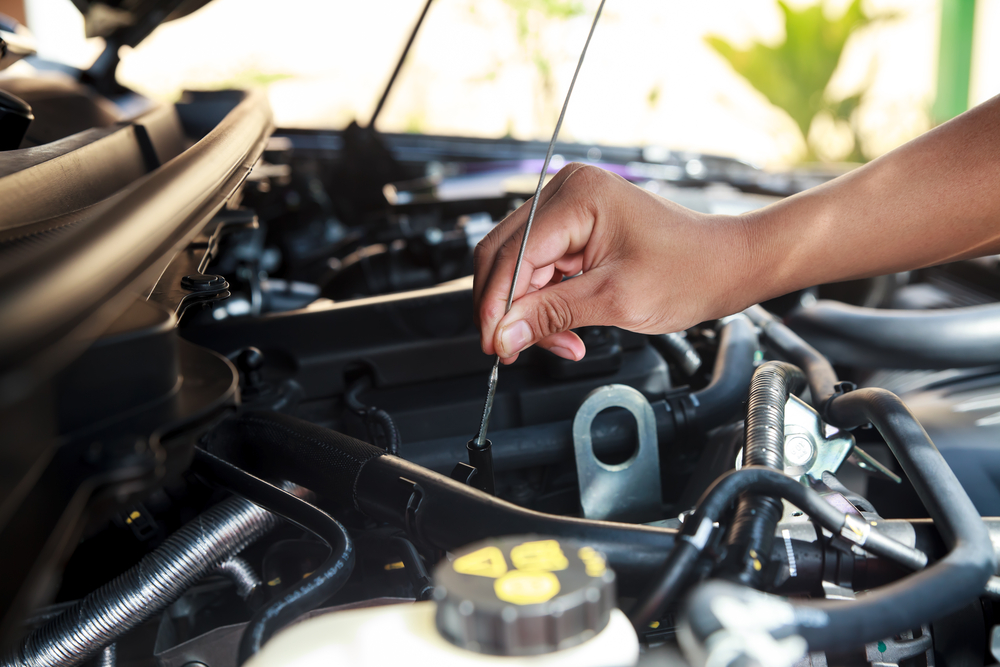All Categories
Featured

Modern lorries are outfitted with sophisticated engine control units (ECUs) that check and control numerous elements of the engine. These systems can find issues prior to they come to be noticeable to the motorist, which is where engine diagnostics enter into play. Engine diagnostics is a powerful tool that enables mechanics to recognize issues early, helping avoid major fixings and making certain the long life of your automobile. Below's just how engine diagnostics work and why they are crucial for preserving your auto's health.
- What Are Engine Diagnostics? Engine diagnostics describe the procedure of using specialized devices to monitor and evaluate the performance of a vehicle's engine. The diagnostic system within an auto collects information from sensing units located throughout the engine and other essential elements, such as the exhaust, fuel, and transmission system. This data is after that refined by the vehicle's onboard computer system, which can spot malfunctions or irregularities.
Mechanics can attach an analysis device, commonly an OBD-II (Onboard Diagnostics) scanner, to your automobile's ECU to fetch mistake codes and real-time information. These codes indicate details locations where the engine or other parts may be experiencing problems, also prior to warning lights or efficiency adjustments are obvious to the chauffeur.
- Recognizing Issues Early. Among the most considerable advantages of engine diagnostics is the capacity to recognize issues early, typically before they escalate right into significant issues. Tiny problems, such as a misfiring ignition system, a defective sensor, or an inefficient gas injector, can progressively worsen if left unchecked. Nevertheless, with very early discovery via engine diagnostics, mechanics can attend to these small issues prior to they create considerable damage.
For instance, if a sensor finds that the engine is running too lean or rich (also much or as well little fuel), this can cause enhanced endure engine parts or inadequate fuel effectiveness. By diagnosing this very early, the technician can adjust the air-fuel mix, avoiding pricey repairs in the future.
- Preventing Engine Damage. With time, troubles with the engine's components, such as the timing belt, exhaust system, or cooling down system, can lead to extreme damage otherwise resolved immediately. For instance, an overheating engine due to a failing radiator or water pump can trigger considerable interior damage, such as deformed cyndrical tube heads or a blown gasket. Detecting problems early through the engine diagnostics system can stop these situations from advancing to tragic engine failing.
The analysis system can also find concerns with the exhaust system, such as a malfunctioning catalytic converter, which can bring about bad engine efficiency and eventual engine damage if not repaired.
- Minimizing Repair Work Costs. By identifying and dealing with minor concerns early, engine diagnostics can save you substantial money on repairs. Repair services often tend to be less intricate and much more cost effective when problems are captured early. As an example, changing a damaged oxygen sensing unit or cleaning up a blocked fuel injector is relatively cost-effective contrasted to replacing a whole engine as a result of disregard.
In addition, engine diagnostics help stop unnecessary repair work by determining the precise source of the issue. Without diagnostics, auto mechanics might have to carry out comprehensive testing and trial-and-error techniques to diagnose the concern, which can raise both time and cost.

- Improving Car Efficiency and Performance. One more benefit of normal engine diagnostics is that it helps improve your lorry's efficiency and gas performance. If the engine is running efficiently and all systems are operating efficiently, you will certainly experience far better acceleration, smoother driving, and increased fuel economy. Engine diagnostics can expose issues such as a blocked air filter, a malfunctioning mass air movement sensing unit, or a worn-out trigger plug that might prevent your cars and truck's efficiency.
For instance, a malfunctioning thermostat could create your engine to get too hot or not reach its perfect operating temperature. An analysis check will assist identify this issue early, stopping overheating and guaranteeing your car operates at its finest.
- Why Normal Diagnostics Matter. While lots of chauffeurs might consider engine diagnostics as something to do only when the "check engine" light appears, routine diagnostics need to become part of regular vehicle upkeep. Numerous automobile service center and car dealerships use analysis checks as part of an annual service or tune-up. Regular diagnostic scans assist catch issues prior to they create visible signs or malfunctions, inevitably protecting against major repairs down the road.
It is also worth keeping in mind that if you're planning to offer or trade-in your car, having a recent engine diagnostic record can be advantageous. Prospective customers or dealers may be a lot more likely to use a higher trade-in value or acquisition rate if they recognize the lorry has actually been well-maintained and complimentary of major engine concerns.
- Conclusion. Engine diagnostics play an important duty in maintaining your automobile running successfully and avoiding expensive repair services. By identifying problems early, preventing engine damages, lowering repair work expenses, and boosting performance, engine diagnostics guarantee your car continues to be reliable for several years to come. Routine analysis checks as part of your automobile's regular upkeep will certainly aid you catch tiny concerns before they turn into major repair work, giving you comfort when driving and securing your investment.
Latest Posts
NAPA AutoCare Certified: Rely on Montclare Auto Repair for Top-Tier Repairs
Published Apr 20, 25
2 min read
Montclare Auto Repair: The Trusted Choice for Dependable Repair Solutions
Published Apr 20, 25
2 min read
Comprehensive Auto Care at Montclare Auto Repair - See Our Offerings
Published Apr 20, 25
2 min read
More
Latest Posts
NAPA AutoCare Certified: Rely on Montclare Auto Repair for Top-Tier Repairs
Published Apr 20, 25
2 min read
Montclare Auto Repair: The Trusted Choice for Dependable Repair Solutions
Published Apr 20, 25
2 min read
Comprehensive Auto Care at Montclare Auto Repair - See Our Offerings
Published Apr 20, 25
2 min read